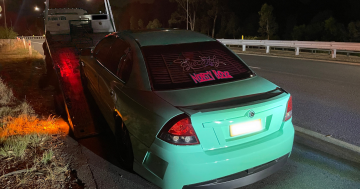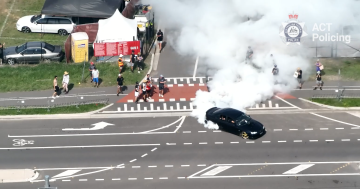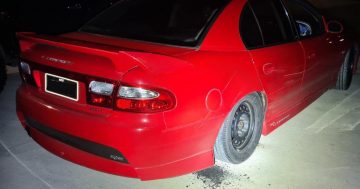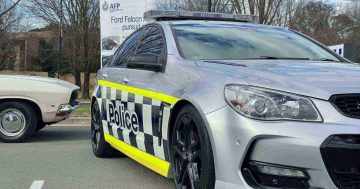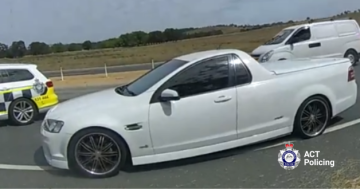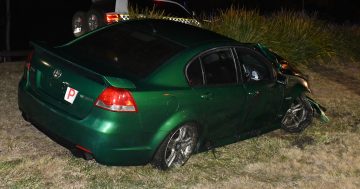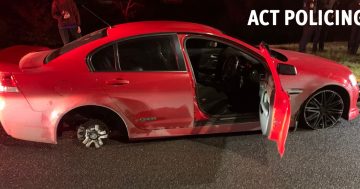A 24-year-old Campbell man was arrested by police yesterday afternoon (Sunday, July 24) after engaging in a pursuit through Lyons and Phillip.
About 4.20pm police were on mobile patrol in Weston when they saw a Holden Commodore travelling at speed along Hilder Street. Police observed the vehicle do a burnout at which stage they activated their lights and sirens in order to conduct a traffic stop. The vehicle failed to stop and a pursuit commenced until police lost sight of the vehicle on Hindmarsh Drive at which stage the pursuit was terminated.
About 4.35pm police received a call from a member of the public that a Holden Commodore had been dumped and that a male was seen running from the vehicle towards the Waramanga shops.
Police attended the Waramanga shops and identified a male who matched the description given by the witness. The man was arrested and taken to the ACT Watch House.
The Holden Commodore was later reported as stolen.
The man was charged with traffic offences including perform burnout in vehicle, drive motor vehicle without consent and drive while right to drive suspended. He will appear in the ACT Magistrates Court today.
Home Loans Made Clear
Award Winning Mortgage BrokersPhone 02 6190 1280











